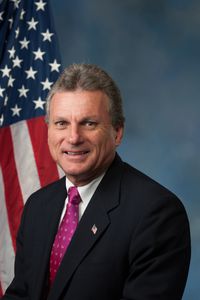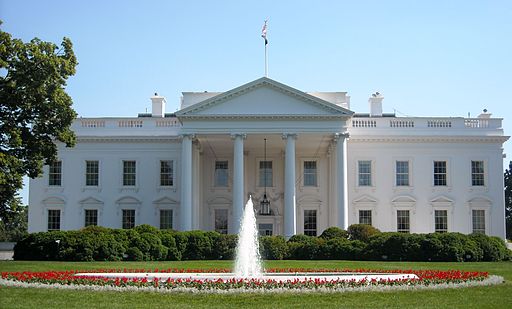Tag: georgia
-
A look at the elections for Georgia’s Public Service Commission

Georgia is holding a special election for two of five seats on the Georgia Public Service Commission on November 4, 2025. The primary is June 17, 2025, and a primary runoff (if necessary) will be held on July 15, 2025. A general runoff is on December 2, 2025. The Georgia Public Service Commission is in…
-
Rep. Earl “Buddy” Carter announces 2026 run for the U.S. Senate in Georgia

Rep. Earl “Buddy” Carter (R-Ga.) announced on May 8, 2025, that he will run for the U.S. Senate in Georgia in 2026 rather than another term in the U.S. House of Representatives. As of May 6, 2025, independent race forecasters The Cook Political Report and Sabato’s Crystal Ball have rated the general election for the…
-
Georgia voters to decide 2026 constitutional amendment to increase acreage limit for conservation use property tax classification

Georgia voters will decide in 2026 on a constitutional amendment to increase the maximum acreage of agricultural and timber property that can be classified as bona fide conservation use property. Under the amendment, the maximum acreage would be increased from 2,000 acres to 4,000 acres. Bona fide conservation use property, under the state’s Conservation Use…
-
80% of elections in Georgia are uncontested

Of 1,825 regular elections in Georgia—1,453 (80%) are uncontested. An uncontested election is one where the number of candidates on the ballot is less than or equal to the number of seats up for election. Of the 26 states where Ballotpedia is covering every election on Nov. 5, Georgia has the second highest rate of…
-
Incumbent Tift County School Board Member Marilyn Burks and Ambrose King Jr. running in the special election for Tift County School Board District 1

Incumbent Tift County School Board Member Marilyn Burks (D) and Ambrose King Jr. (D) are running in the special election for Tift County School Board District 1 in Georgia on Nov. 5. This is a re-do election of the May 21 Democratic primary, in which Burks received 156 votes to King’s 154. Three seats on…
-
Mapping errors in two Georgia school board races result in redo elections on Nov. 5
On Nov. 5, 2024, voters in Georgia’s Ben Hill and Tift County School Districts will return to the polls and weigh in on two redo elections. In Ben Hill County, the redo features District 6 incumbent Kenneth Palmer and Austin Futch. This is a nonpartisan special general election, with the winner filling out the remainder…
-
Seven candidates are running for four seats on the Cobb County School Board in Georgia

Seven candidates are running for four seats on the Cobb County School District school board in Georgia on Nov. 5, 2024. Republicans hold a 4-3 majority on the seven-member board. Democratic incumbent Leroy Tre Hutchins (D) is running unopposed in District 3. The other three districts up for election each have Republican incumbents, one of…
-
Four presidential tickets will appear on the ballot in Georgia this November

Georgia’s Nov. 5, 2024, general election ballot will feature four presidential candidates and their running mates. They are: This is the most candidates on Georgia’s presidential ballot since at least 2008. In 2020, Georgia’s ballot had three candidates: Joe Biden (D), Donald Trump (R), and Jo Jorgensen (L). Biden won Georgia that year with 49.5%…
-
Changes to voter registration and absentee/mail-in ballot counting are among new election laws in Georgia

Legislators in Georgia adopted 33 new election laws related to elections this year, including changes to voter registration challenges and a new deadline for counting absentee/mail-in ballots. They also established new requirements for poll workers, rules for poll observers, and a new system for posting images of voted ballots: SB 189 is an omnibus elections bill…
-
Crisp County, Ga., magistrate judge primary ends in tie, rare runoff, following recount

Republican voters in Crisp County, Ga., will get a second shot to pick their nominee in the county’s chief magistrate judge race on June 18. George Holmes and Brandon Rivers faced each other in a primary on May 21. Initial returns showed Holmes leading Rivers by one vote, enough to secure the nomination. But in…

